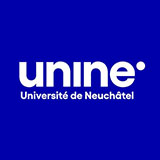Detailed introduction of the University of Neuchâtel:
Introduction and Overview
Nature of the institution: The University of Neuchâtel is a public research university located in Neuchâtel, Switzerland.
Student size: It has about 4,380 students, of which nearly 20% are from abroad.
Geographic location: Located in central Europe, between Geneva and Zurich, close to lakes and mountains, the campus is located in different locations in the city of Neuchâtel.
History and establishment time
The predecessor of the University of Neuchâtel was a college founded by King Frederick William IV of Prussia in 1838, which mainly awarded degrees in literature and science. In 1848, the college was closed, and a new "college" was re-established in 1866, and finally renamed the University of Neuchâtel in 1909.
School Strength
Teaching Staff: The school has 1,103 administrative staff and teaching staff to provide high-quality teaching and support for students.
Teaching Resources: The school has 4 colleges and more than ten research institutes, providing a variety of courses from undergraduate to doctoral, covering arts and humanities, natural sciences, law, economics and other disciplines.
Scientific Research Achievements: About 4,000 are obtained each year With a research funding of 10,000 Swiss francs, the university has several Swiss national centers of excellence, such as the Center for Plant Survival Research, and has achieved remarkable research results in the fields of biology, geology, law, economics, and other disciplines.
Educational philosophy
The University of Neuchâtel focuses on cultivating students' innovative ability and interdisciplinary literacy, emphasizing the combination of theory and practice, and encourages students to participate in scientific research projects and social practice activities to improve their comprehensive quality and ability to solve practical problems. At the same time, the school is committed to providing an international educational environment, conducting extensive cooperation and exchanges with universities and research institutions in Europe and around the world, and broadening students' international vision.
Key laboratories and disciplines
Key laboratories: The school has electronic and signal processing laboratories, etc. As part of the Institute of Microtechnology of the University of Neuchâtel, the laboratory has carried out cutting-edge research in related fields.
Key disciplines:
College of Humanities: It is the largest college in the school, with about 2,000 students. It has a deep academic accumulation in the fields of ancient and medieval languages and civilizations, archaeology, art history, English language and literature, French language and literature, logic, museology and philosophy.
Faculty of Science: There are about 900 students, active in research fields such as biology, biogeosciences, hydrogeology, geothermal science, information technology, mathematics, chemistry and physics. The Center for Plant Survival Research is one of the leading scientific research institutions in Switzerland.
School of Law: 560 students, offering six master's degree programs in commercial law, international and European law, public law, health and biotechnology law, sports law, and judicial careers. It has cooperated with Bocconi University in Milan and De Montfort University in Leicester to offer international master's degree programs and has several professional research institutes.
School of Economics: There are about 700 students, and its bachelor's degree in economics is rated as one of the best bachelor's degrees in Switzerland. The school offers master's degree programs in financial analysis, international business development, public economics, public policy and management, labor and organizational psychology, statistics and information systems. It also has the only journalism and media school in Switzerland, focusing on meeting the new needs of the media industry.
Department Settings
The University of Neuchâtel has a total of 4 schools, as follows :
Faculty of Humanities: covers ancient and medieval languages and civilizations, archaeology, art history, English language and literature, French language and literature, logic, museology, philosophy and other disciplines, as well as research and teaching in social sciences such as anthropology, geography, psychology and education, Swiss Immigration and Population Research Forum, sociology and other fields.
Faculty of Science: includes biology, biogeosciences, hydrogeology, geothermal science, information technology, mathematics, chemistry, physics and other disciplines.
Faculty of Law: provides teaching and research in professional directions such as commercial law, international and European law, public law, health and biotechnology law, sports law, and judicial profession.
Faculty of Economics: has professional courses such as financial analysis, international business development, public economics, public policy and management, labor and organizational psychology, statistics, information systems, and related majors of the School of Journalism and Media.
Ranking
In the 2024 QS World University Rankings, the University of Neuchâtel did not enter the top 500.
Fees
Tuition fees: The tuition fees for undergraduate and master's programs are about 580 Swiss francs per semester. There is usually no tuition fee for doctoral programs, but some registration fees and other fees may be required.
Living expenses: The cost of living in Neuchâtel is relatively high, and the monthly living expenses are about 1500-2000 Swiss francs, including accommodation, food, transportation and other expenses.
Campus
Teaching facilities: The University of Neuchâtel does not have a centralized campus, and its buildings are distributed throughout the city, but the main teaching facilities are complete, including modern teaching buildings, libraries, laboratories, etc., providing students and teachers with a good teaching and research environment.
Campus life: Campus life is rich and colorful. The school has various student clubs and organizations, such as student unions, academic clubs, cultural clubs, sports clubs, etc. Students can participate in corresponding club activities according to their interests and hobbies. In addition, the school often holds various academic lectures, cultural activities, sports competitions, etc., which enrich students' extracurricular life.
-
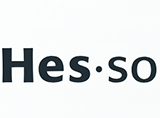
University of Applied Sciences and Arts of Western Switzerland
-

University of Basel
-

Swiss Federal Institute of Technology Zurich
-
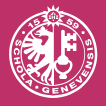
University of Geneva
-
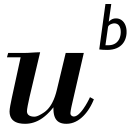
University of Bern
-

Università della Svizzera Italiana
-
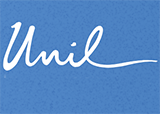
University of Lausanne
-

Franklin University Switzerland, FUS
-

Bern University of Applied Sciences
-

University of St. Gallen
-

Mesoamerican University
-

Istmo University
-

Mariano Galvez University of Guatemala
-

Regional University of Guatemala
-

Galileo University
-

Francisco Marroquín University
-

Rafael Landívar University
-

University of the Valley of Guatemala
-

University of San Carlos of Guatemala
-

Technological Institute of Tlaxcala Plateau
-

Golfo University
-

Technological University of South Sonora
-

Technological University of Huejotzingo
-

Tizimín Institute of Technology
-

Chilpancingo Institute of Technology

